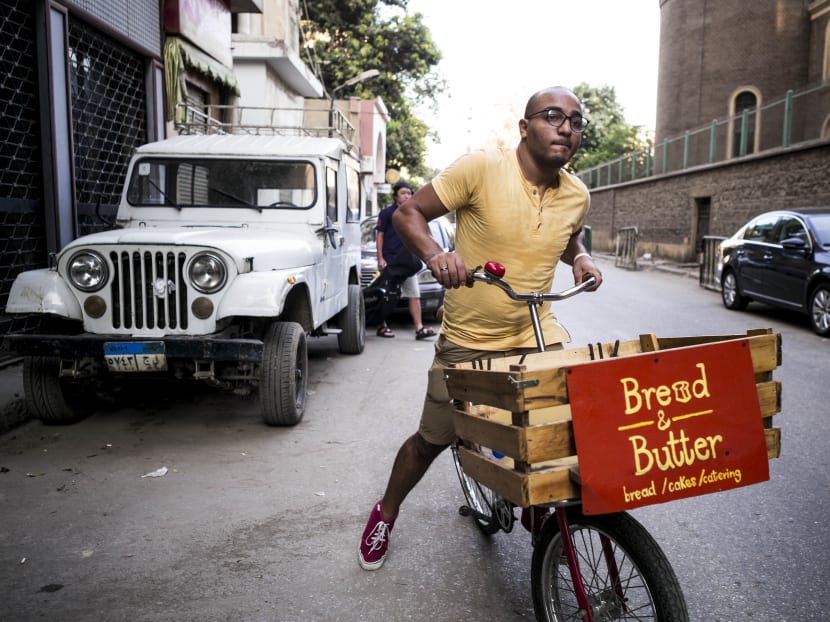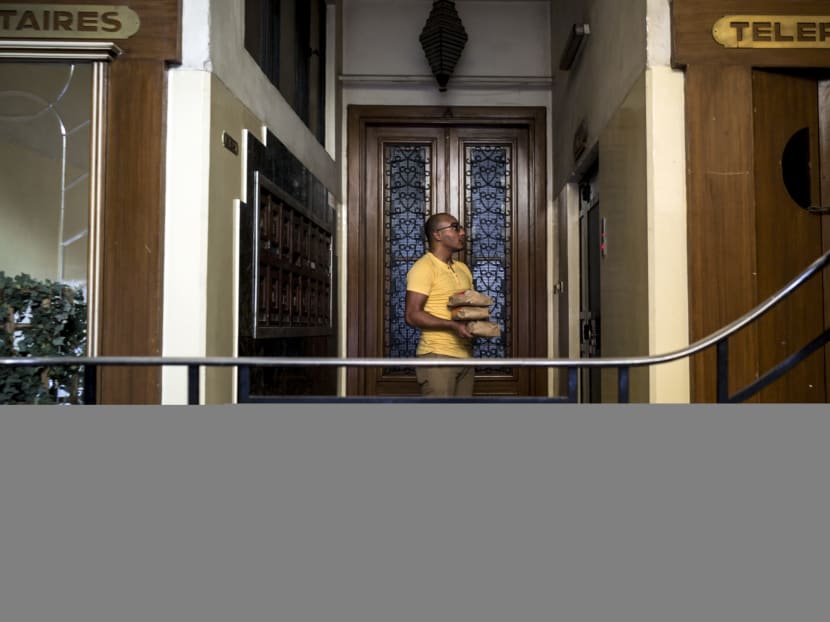Coffee, bikini waxes, X-rays: Almost anything can be sent to homes in Cairo
CAIRO (Egypt) — When it comes to home delivery and services, Cairo has most other places beat.


CAIRO (Egypt) — When it comes to home delivery and services, Cairo has most other places beat.
Suffering from a hangover and perhaps some regrets? Costa Coffee will send around a single shot of espresso for US$2.70 (S$4), and the neighbourhood pharmacy will dispatch one morning-after pill for US$2.
Want a Brazilian bikini wax? It can be done in the privacy of your home for US$6. Need a birth or death certificate? Just put in a call to the government, which will dispatch it within 72 hours.
For city dwellers in Egypt, almost anything can be delivered, and for nearly nothing.
Home deliveries started with fast food, but have come to include an array of other goods and services. Upscale restaurants will deliver a salad or a single slice of cake; stationers will send pens to the office; liquor stores will supply alcohol if a party runs dry; bakeries will send fresh bread and pastries straight from the oven — most of it carried on the backs of battered old motorcycles.
Driving the trend is a middle class willing to spend money to avoid hassles, plus large numbers of poorer people willing to zoom around on motorcycles for less than US$10 a day. Given Cairo’s bad traffic and long, hot summers, the capital’s dwellers need little encouragement to pick up the phone. (Deliveries spike especially in July and August, when daytime temperatures rarely drop below 90°F, or 32°C.)
The customers pay very little for the convenience — delivery charges are typically less than one US dollar.
“It is too hot for anyone to walk, and no one wants to drive through a traffic jam and then have to look for a parking spot,” said Mr Shady Ahmed, who delivers for Costa Coffee in Zamalek, an affluent Cairo neighbourhood. “Why would anyone waste money on a cab coming and going when we can deliver to them for less?”
Even the government’s creaky bureaucracy has seized on the trend. In January, the civil registry created a call centre for people to renew their national IDs and then get birth, death and marriage certificates delivered to their homes, a service they can also find online.
“We did this to make life easier. Not everyone can use the internet, and this way they don’t waste time coming here and make traffic worse,” said Mr Ehab el-Attar, the registry’s head. “I don’t think this particular service is a proof of laziness.” But, he added with a laugh, “There is definitely plenty of laziness around”.
The home delivery culture is spreading into the service sector, as well. Now an ailing runner can have her knees X-rayed in bed for about US$55, and while she is at it, get a haircut and a pedicure.
While businesses have jumped at the opportunities, some of their workers grumble about the customers’ attitudes. “They’ll just sit there with coffee mugs and barely look at you. You just want to tell them, ‘You are not rich, this is just cheap,’” said Ms Nagat Hosny, a body waxer who does home visits.
Mr Mostafa Mahmoud travels the city taking blood from people at home — he is a phlebotomist, not a vampire — and delivers it to Al Borg, one of the capital’s leading medical labs.
“It is often exasperating when you go and find that the person is absolutely fine and just chilling at home,” he said. “Some even have the audacity to scold you if you are 10 minutes late.”
With an increasing number of goods and services finding their way to the doorsteps of customers, it was inevitable that some high-tech solutions would also come along.
Mr Waleed Rashed is the founder of a company that plans to introduce a delivery app called Voo in October. Voo (the name is meant to suggest the sound of speed) aims to do almost any chore for anyone.
“There is no incentive to go outside. Just one hour outside is enough to ruin anyone’s day,” Mr Rashed said.
Voo might, for example, pick up keys you left at a friend’s house and return them to you within an hour for an average of US$5, he said.
Ingez, an Egyptian company whose name translates as “hurry up”, has also latched onto the delivery craze. It offers services such as driving sundry goods — a single cellphone cover, say — from one end of Cairo to another for as little as US$2.50, or taking flowers to someone in the hospital on behalf of a busy relative.
“Sometimes we find it funny,” said Mr Ahmed Farouk, the company’s manager of operations. “I personally wouldn’t request a delivery for a small order myself, but people generally are never shy about it.”
Dr Ammar Ali Hassan, a prominent Egyptian novelist and political sociologist, attributes such attitudes to the return of many relatively affluent Egyptians who were guest workers in Saudi Arabia and other countries on the Persian Gulf.
“Many were influenced by the Gulf,” Dr Hassan said. “They think, ‘Oh I am a big deal and can act like a member of the upper class now. I am too big for queues.’”
Home delivery has become so habitual here that Egyptians abroad tend to feel deprived.
Ms Salma Adel, a young Egyptian physician who moved to Ireland more than a year ago, said delivery was one of the things she missed most.
“It has to be up there with family,” she said. “It’s not like it’s just fast food. It’s all food.”
“There’s something beautiful about being able to conjure up a beautiful meal out of thin air when you’re at home and can’t be bothered to cook,” she added. THE NEW YORK TIMES






